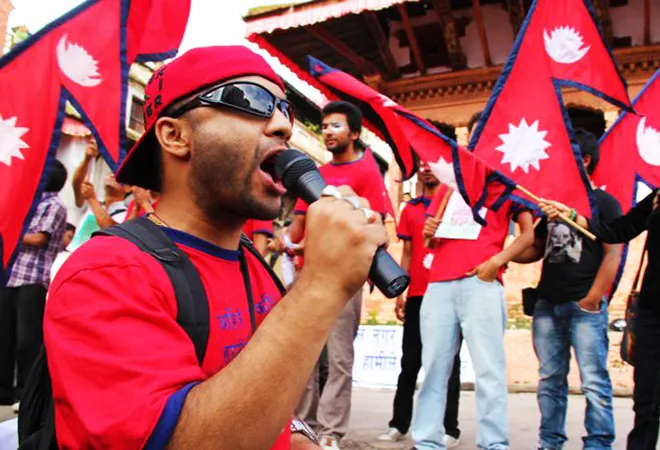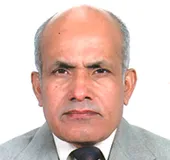
More than three years ago, on 20 September, 2015, Nepal's seventh constitution was promulgated in an environment in which one section of the society was celebrating the occasion with jubilation while the other was observing it as a 'black day.' As per the constitutional provision, elections for the local, provincial and federal levels were completed in 2017. Subsequently, 761 governments were formed, which included 753 governments at the village council and municipality levels, seven governments at the provincial levels and one government at the federal level.
Unexpectedly, the Communist Party of Nepal (CPN) emerged as the strongest political force in the country after the elections. It not only formed the government at the federal level but also in six out of seven provinces as well as in most of the village councils and municipalities.
At the federal level, the CPN got a two-thirds majority. No other political party got so many seats in the parliament as the CPN after 1959. Such developments were embarrassing to the Nepali Congress that was the largest political party in the country in the previous parliament. It was equally embarrassing to the Madhesh-based political parties like the Rastriya Janata Party-Nepal (RJPN) and the Federal Socialist Forum Nepal (FSFN) as they could form government in only province no. 2 and certain village councils and municipalities in this province at the cost of losing their hold in larger parts of the Terai region. It was also a humiliation for them as the issues that they had raised during the Madhesh movement in 2015-16 could not be addressed due to the lack of amendment in the constitution.
Nevertheless, the political scenario in the country is not all in favour of the CPN. The disenchantment of the Madheshi people towards the constitution continues unabated. Right on the Constitution Day on 19 September, the Madhesh-based RJPN, which has been extending support to the federal government at the Centre and is a ruling party in State No. 2, observed the occasion as black day.
As if this was not enough, even those groups who celebrated the Constitution with jubilation are not very happy with the performance of the government. Even some senior most leaders of the CPN, including Madhav Kumar Nepal, have become more critical of the federal government for its failure to give a new direction to the country. Until recently, all important segments of the society, like the doctors, drivers and journalists, were in agitation as the newly formed Muluki Ain (Country Code) of the country made provisions of stringent punishment for the mistakes in their respective professions. And, the common mass of the Nepalese population seems to be frustrated for the way the prices of different commodities have escalated in the market.
Significantly, the CPN government has not been able to take any measure that could increase production and productivity in any important sector of the national economy. As such, the rate of economic growth, that is hovering below 4 per cent, is not likely to grow. New employment opportunities have not been created. Cases of rapes, corruption and violence have been growing each successive day.
What is also worrying is the fact that the new leadership in the country has not been able to translate the spirit and letter of federalism that is enshrined in the constitution. The Centre does not seem to be in the mood to share power with the seven state governments and also with the local units. Of Nepal's total budget, about 70 per cent is still held by the federal government itself and only 30 per cent is allocated to the provincial and local units.
With so meagre amount of funds at their disposal, the provincial and local government cannot launch priority projects in the interests of the people. Therefore, to raise additional resources mostly the local units have started imposing taxes haphazardly. Such activities have almost terrorised the local taxpayers.
The federal government is expected to send civil servants to the provincial and local governments. But as yet, most of these bodies have not got the needed manpower to execute projects. This has raised the suspicion if the Centre is honest to the cause of making the federalism a success.
All is not well with the ruling party, the CPN, either. Despite the merger of erstwhile Communist Party of Nepal (Unified Marxist-Leninist) led by K.P. Oli and the CPN (Maoist) led by Prachanda, the rivalry within the party for supremacy continues. Even within the party structure, most of the political workers are critical of their own leadership and the government for their failure to meet the expectations of the people.
Furthermore, the government of Nepal also seems to have developed maturity in balancing its strategic relations with its two neighbours, India and China. Of late, Nepal's decision to shy away from the military exercise with the Bay of Bengal Initiative for Multi-Sectoral Technical and Economic Cooperation (BIMSTEC) is taken as a blatant move to humiliate India. Besides, the prestigious 1200 megawatt Budhi Gandaki hydro-power project has been re-awarded to a Chinese company, Gezhouba Group, for construction. In November last year, the then Nepali Congress government, led by Sher Bahadur Deuba, had cancelled the contract to this company.
Commenting on the re-awarding of the project to the Chinese company, Energy Minister Barsa Man Pun observed that it is out of compulsion that the multi-billion dollar project was re-warded to the Chinese company. To please China, additional efforts have been made to allow the northern neighbour to implement railway and other projects under the Belt and Road Initiative.
It was after decades that Nepal had got political stability as the people gave unequivocal support to the CPN at the Centre as well as in most of the provincial and local bodies. But the government does not seem to cash on the strong mandate it has got. Therefore, people's hopes in the present government could wane. So, it is the need of the hour to address the aspirations of the dissatisfied groups, apart from maintaining law and order and create a congenial environment for investments, development and job creation in the country. Equally important is the responsibility of the government to maintain geo-strategic balance in the region. Any failure on some of these fronts could invite fresh political instability in the country.
The views expressed above belong to the author(s). ORF research and analyses now available on Telegram! Click here to access our curated content — blogs, longforms and interviews.




 PREV
PREV


